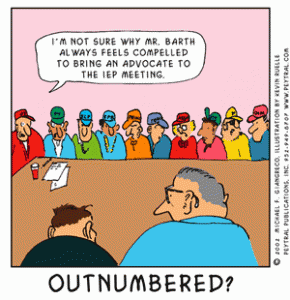After the exhausting ordeal of an Individualized Education Program (IEP) hearing, it’s tempting to hibernate on the couch watching reruns or playing with Pinterest to decompress. Unfortunately, your work is not yet over.
How to Prepare for an IEP Hearing
Individualized Education Program (IEP) Legal IssuesDisagreeing with an IEP
If you disagree with your child’s Individualized Education Program (IEP), you can try to negotiate with the IEP team to reach a compromise. You may reject the proposed compromise if you feel that it does not serve your child’s best interests. If negotiation fails, the next step is to file a formal complaint with your state’s Department of Education. Assuming that the state agrees to hear your complaint, you will have the opportunity to present your argument before a due process hearing. It’s recommended that you retain an attorney for the hearing.
How to Disagree with an IEP
Individualized Education Program (IEP) Legal Issues
Image source: eiwelcome.com
What is an IEP?
Your child’s Individualized Education Program (IEP) is a written document that details the services he will receive within the public school system under the Individuals with Disabilities Education Act (IDEA). You and a team of professionals will write the IEP during your IEP meeting.


